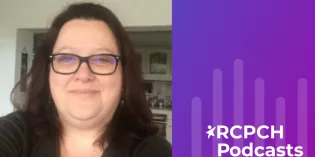It would be good to have children and young people’s experience of research to hear about. If they tell each other [young people], it’s the same way they say it, the same understanding and they had the same experience.
The Charter
Remember it's about me; involve and support me at every stage and keep me safe from harm.
Empower me, my family, and the people caring for me; help us to understand and feel more confident about research.
Support me, my family, and the people caring for me; give us time to understand research processes, how to assess risks and benefits, and what it will mean to be involved.
Engage with me and my family; listen to our questions and ideas, so we can help you to help us benefit from research.
Actively gain my consent or assent and explain my right to change my mind and withdraw at any time.
Rights are important to me; my right to understand research, be involved in decisions, be respected, and to help others benefit from research.
Communicate with me directly and clearly; make it easy for me to talk to someone about the research when I have questions or ideas.
Help others by sharing our stories; the things that worked and the things that didn't.
Why did we develop the Charter?
Working with children, young people, parents, carers and healthcare professionals, we developed the Infants’, Children’s and Young People’s Child Health Research Charter to provide guiding principles for anyone - whether that be a child, young person, parent, doctor, nurse, allied healthcare professional, researcher or anyone working with and involving children and young people in research.
The Charter aims to support children, young people, families and health professionals to talk about child health research and guide discussions to ensure everyone is clear on what is happening, when and why child health research is important.
The Charter is one of the commitments we made in the Turning the Tide report. It builds on the work of the Nuffield Council on Bioethics, Generation R, National Institute of Health Research, the National Children’s Bureau, UNICEF and more.
You need to make it clear communication that is face to face. Explain it person-to-person. Give a leaflet only at the end but read it with them. But don’t just give it to them to read - what if they have language barriers or the interpretations are different?
Why do we need a Charter?
Child health research is important. We support the need for clinicians to involve children and young people in research and discussions surrounding this.
We have worked with young people, parents and carers and other relevant professional and lay groups to ensure the Charter sets out the ways in which children, young people and their families can be actively involved and support research in order to better understand the biology of their health and disease.
Just as importantly, the Charter stresses the critical importance of ensuring that research evidence is incorporated in a timely way into national clinical guidelines and policies, and that these are implemented, audited, and evaluated.
What is available?
You can download below the Charter poster, to print and display in your office or clinic, as well as our guide, What you need to know.
The how you explain it should be like talk about safety, the process, the explanation, the outcomes and the positive benefits to the world.
Organisations supporting the Charter
The Council welcomes [the Charter] which reflects much of what we heard from young people, parents, researchers and health professionals in our own evidence gathering on the ethical issues around involving children and research. This included the importance of actively involving children and young people in the process of making a decision about research; of good communication and clear, accessible information to support informed decision making; and of researchers engaging with the views and experiences of young people and their parents in the design and review of research.
In our report Children and clinical research: ethical issues we concluded that involving children, young people and their parents at all stages of the research process can help to minimise the risk of children being placed in a situation that makes them vulnerable, and ensure that research is more suited to their needs. We are pleased to see RCPCH taking this agenda forward in such a positive way.
[It] is wonderfully precise and succinct, and it clearly addresses the major challenges to pediatric research. The charter provides much needed guidance on best practices for engaging young people and their families in health research, and goes further to provide readers with an External Resources Guide. We appreciate that the charter was written with collaboration from children and it maintains their interests throughout. We hope that every pediatric health professional has a chance to use this resource.
Reviewed and assessed by UNICEF Office of Research Innocenti as compatible with UNICEF mandatory procedures on research ethics.
What support do health professionals need?
When we asked what support members need from the Trust, the most popular response was protected time in the workplan.
These findings correlate with previous findings from our 2015 survey of all consultant and SAS grade paediatricians working in the UK. The survey looked at the capacity of all members of this workforce to participate in research, and their views on public and patient involvement (PPI) in research.
Contact
For more information or advice about research please contact the RCPCH Research and Evidence team at research@rcpch.ac.uk
To find out more about involving children and young people contact: and_us@rcpch.ac.uk







